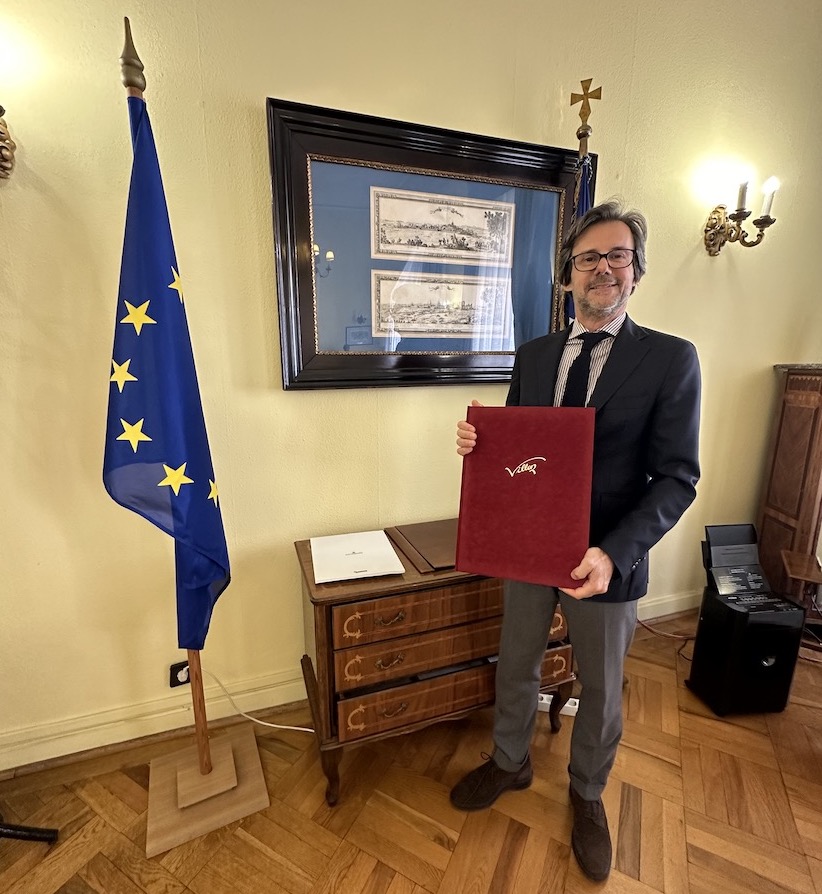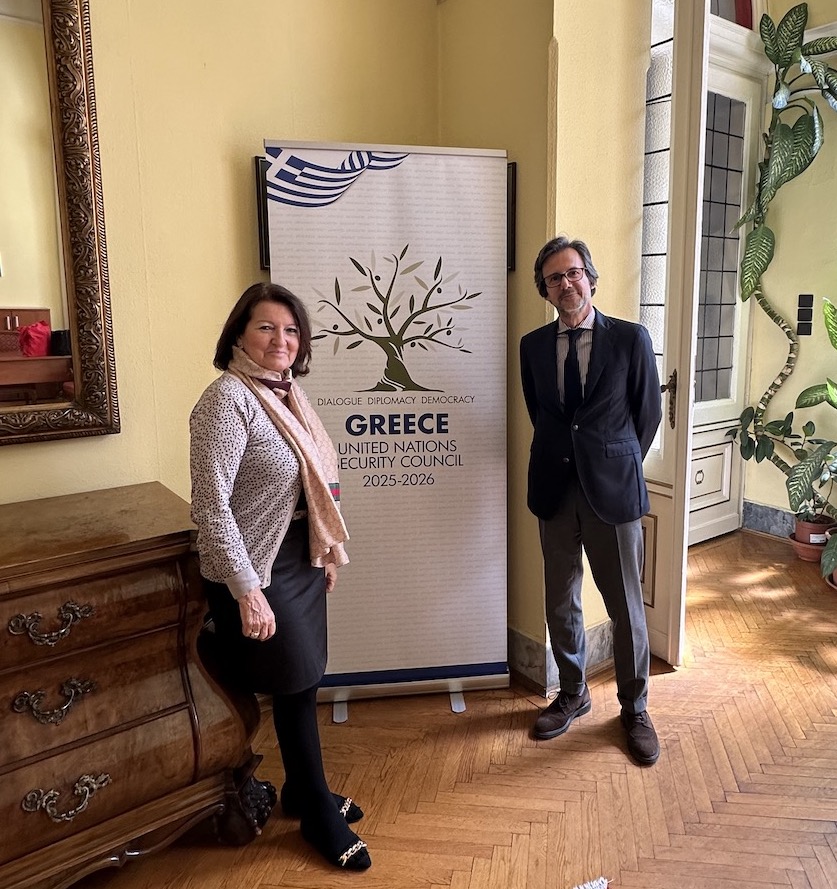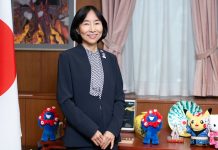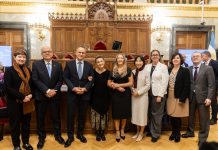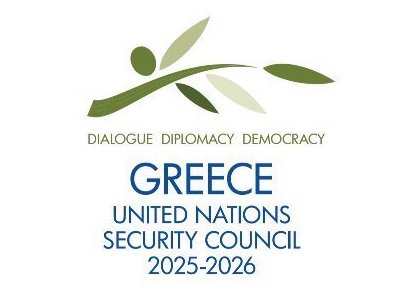“Greece is a key pillar of stability and democracy in both the Balkan region and the wider Southeastern Mediterranean”
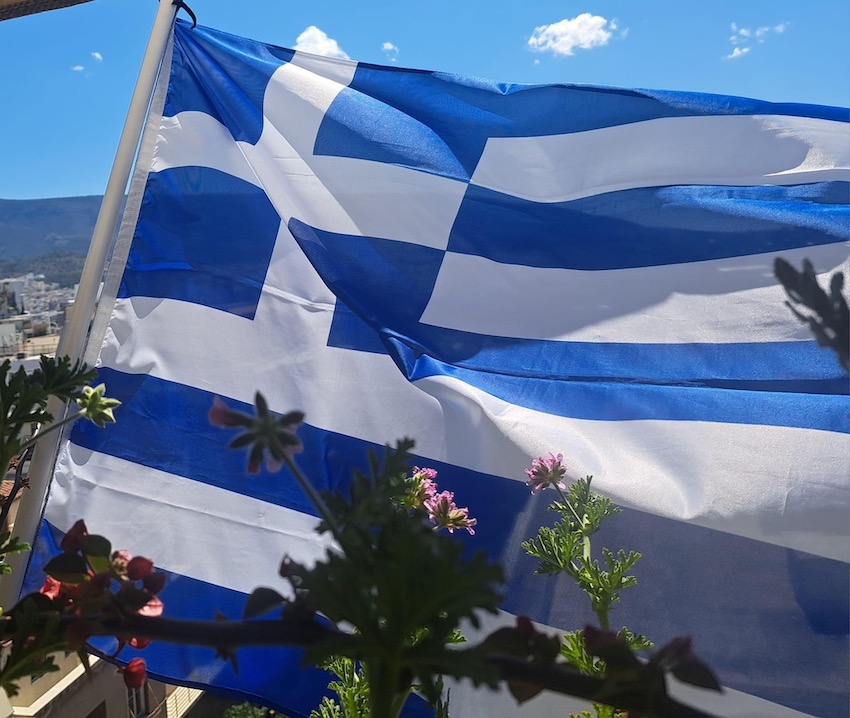
Your Excellency, first I would like to convey my belated congratulations on the Independence Day of Greece, celebrated on 25 March 2024, marking the 203rd anniversary of the Greek Revolution, considered the birthday of modern Greece. Let me also take this opportunity to congratulate you on your successful campaign and recent election as a non-permanent member of the United Nations Security Council (UNSC) for a two-year term beginning on 1 January 2025. This election, held during the 78th session of the UN General Assembly in New York on 6 June 2024, marks a significant achievement.

Since the inception of the United Nations in 1945, Greece, as a founding member, has constantly demonstrated its political commitment and dedication to maintaining international peace and security in the global arena.
Your Excellency, tell us please about the Greek candidacy that ran under a powerful motto, a message to the world, encapsulating core principles and approach to international relations.

– It was a great day and a proud moment for my country, when Greece has been elected to the UN Security Council for the 2025-2026 term with the support of 182 UN member states. As a «compass» for our candidacy three Greek words, emblematic of universal values, were chosen: “Dialogue, Diplomacy, Democracy”. These three D-words, which comprise the fundamental bases for the proper functioning of the international relations edifice, will set the broader framework within which we will develop our individual actions.
The emblem of our candidacy was the olive tree and its branch. Since it was planted in Attica soil by the goddess Athena, the olive tree has represented peace and wisdom. During the ancient Olympic Games, when all wars were suspended, it became the symbol of the Olympic Truce. A crown of olive leaves (kotinos) was the prize for the winner in the Olympic Games. It was the symbol of fair play. The olive tree has also been a reference point for Mediterranean countries and people over the centuries.
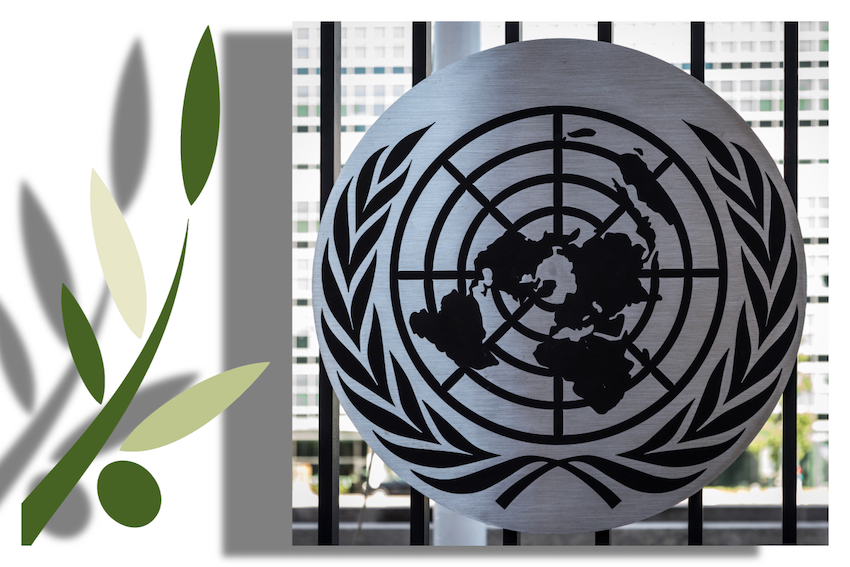

What are the basic pillars of Greece’s candidacy as an elected non-permanent member of UNSC for the 2025-2026 term?
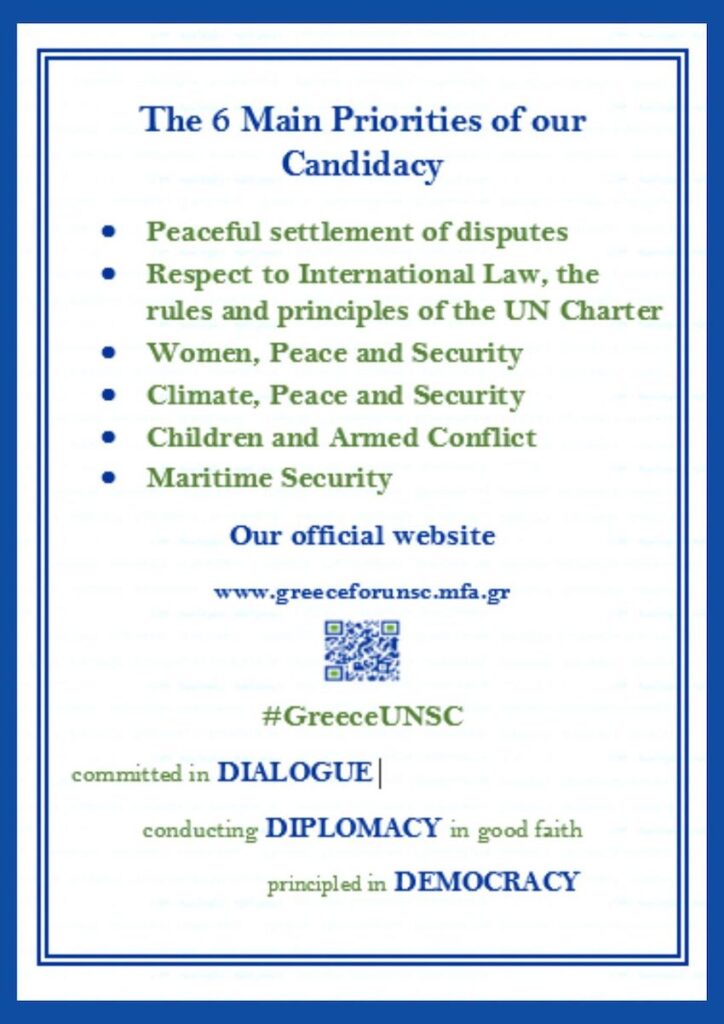
– Greece is a firm advocate of the goals and fundamental principles enshrined in the UN Charter. As a founding member of the United Nations with an established democracy, Greece has always supported dialogue and diplomacy on the basis of International Law, as the sole viable means for achieving the Organisation’s main objectives, namely international peace, security, development and promotion of human rights. In this context Greece will focus on six main priorities: a) Peaceful settlement of disputes, b) Respect to International Law, the rules and principles of the UN Charter, c) Women, Peace and Security, d) Children and Armed conflicts, e) Climate change and security, f) Maritime Security.
It is the third time for Greece to serve in the UNSC. What will be the Greek contribution?
– Indeed, Greece served in the UNSC as a non-permanent member twice in the past, in 1952-1953 and in 2005-2006. We are grateful that the members of the UN, with their recent vote, entrusted us with a third stint in this major UN body for the 2025-2026 period. Our re-election to the UN Security Council after 20 years constitutes a major national goal. A goal, which is also extremely close to my heart, since I had the privilege to serve as head of the UN Department of the Greek Ministry of Foreign Affairs from 2015 to 2019, and thus contributing to the hard work required to promote such an important candidacy and to build a successful campaign.

As for the Greek contribution to the UNSC, let me stress that during these very challenging times the Greek candidacy reflects our commitment as a founding member of the United Nations to serve the Organisation and the implementation of its Charter.
Greece is a key pillar of stability and democracy in both the Balkan region and the wider Southeastern Mediterranean, supporting the territorial integrity and sovereignty of all states and condemning revisionism wherever it comes from. As an elected member of the UN Security Council, Greece will spare no effort in order to ensure that the opinions of all States are heard and respected, as well as to promote consensus and build solutions to global challenges in line with the principles and purposes of the United Nations Charter and the respect of international law.
Finally, I would like to take this opportunity to thank Hungary for supporting the Greek candidacy in the UNSC. As you know, Hungary and Greece have long-standing friendly relations and constructive cooperation at bilateral and multilateral levels. This fact is also reflected in the fruitful cooperation in the area of mutual support for our respective candidacies in international forums.
In the next chapter of the interview Ambassador Apostolakis also responded to questions about bilateral ties and the diplomatic service:
Your Excellency, what goals and priorities have You set to achieve after taking up Your office as Ambassador of the Hellenic Republic to Hungary in 2022?
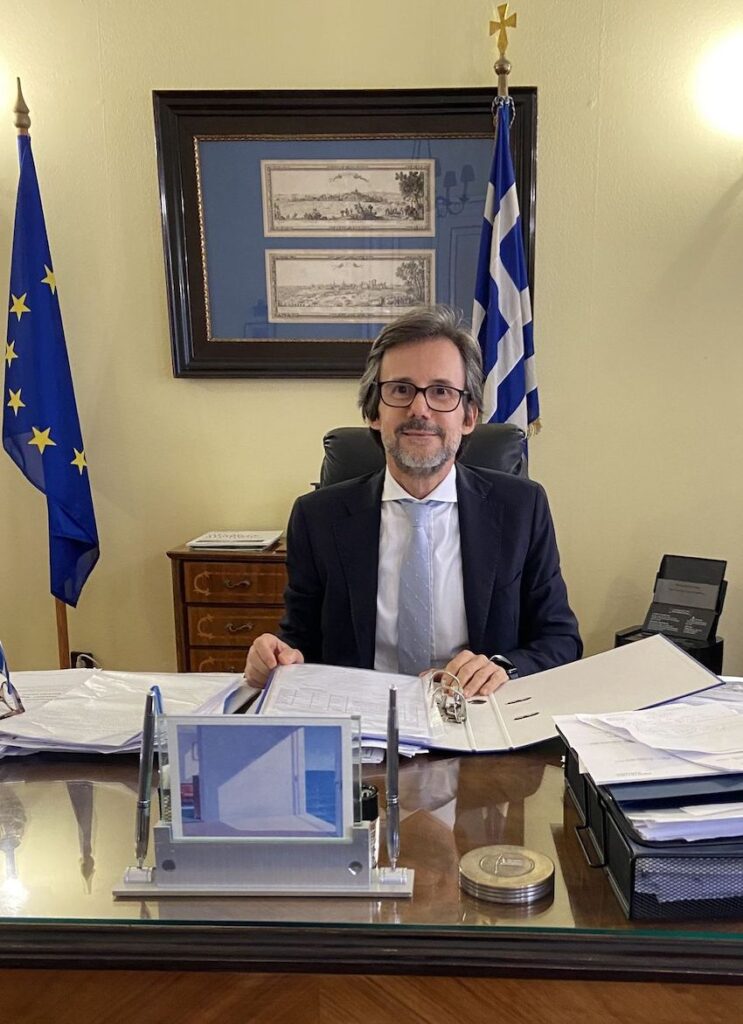
– No matter how good the bilateral relations and ties are, there is always space for improvement. And this is one of the main tasks of an Ambassador and his team. As I mentioned, Greece and Hungary are linked by long-standing historical bonds, and their bilateral relations and constructive cooperation reflect that. Yet no matter how good the bilateral ties are, there are certainly unexploited opportunities to deepen cooperation in various fields, such as economic, trade and investment sectors. Enhanced cooperation in the energy field is also of particular importance, given also the significant role Greece is assuming as an energy hub in its region. Defence, digital governance, cybersecurity are sectors, where there are opportunities for further synergies as well. In addition, we have seen in recent years a technology ecosystem emerge in Greece with many very active start-ups and this is another sector of potential mutually beneficial cooperation. The protection of Christian monuments and populations is a field where our two countries have already successfully cooperated, and we can do even more. Last but of course not least, culture is a domain where we can further enhance our cooperation, especially with countries with such a rich historical and cultural background as Greece and Hungary.
Speaking about economy, Greece is indeed a very tourism-oriented country with a unique historical legacy, natural beauties and excellent infrastructure, making it the top seaside destination for Hungarians living in a landlocked country. What are this year’s trends for Greek tourism?
– Indeed, Greece has the privilege to be a major tourist destination, and I believe there are numerous reasons for that. Apart from the natural beauty and rich history you mentioned, Greece has managed to further advance its tourism product over the last years, offering impeccable services at competitive prices. Furthermore various alternative forms of tourism have been developed (including cultural tourism, religious tourism, rural tourism, oleotourism /exploring the culture of olive oil/, wine tourism, sea tourism, health tourism, sports tourism etc), covering the needs of all types of visitors. Moreover, the mild Greek climate that has made the country a 365-day destination for tourists from all over the world, the unique flavours of Greek gastronomy and the lively way of life are additional reasons to choose Greece in your holiday plans. And last but not least, the famous Greek hospitality, aptly reflected in the word “philoxenia”, the Greek word for hospitality, which literally means being a friend to a stranger. We are grateful to Hungarians for making Greece one of their top holiday destinations, and look forward to warmly welcoming more friends from Hungary and showing them the meaning of Greek hospitality!
On this occasion, let me also add that in recent years Hungary has become one of the most popular tourist destinations for Greeks, too. I witness this every weekend during my regular stroll from my residence on Andrássy street towards the Danube, where I meet an ever-increasing number of enthusiastic Greek travellers.
Greek nationals have a long-standing historic presence in Hungary, contributing to its development over the centuries and its cultural diversity. Can You please tell us a few words about the Greek Diaspora in Hungary and how You see its role today?
– As you mentioned, the presence of the Greeks in Hungary is indeed long-standing, dating back to the early Hungarian Kingdom. The lower part of the Hungarian Holy Crown has Greek inscriptions and many experts believe that it comes from workshops of Constantinople, the Byzantine capital.
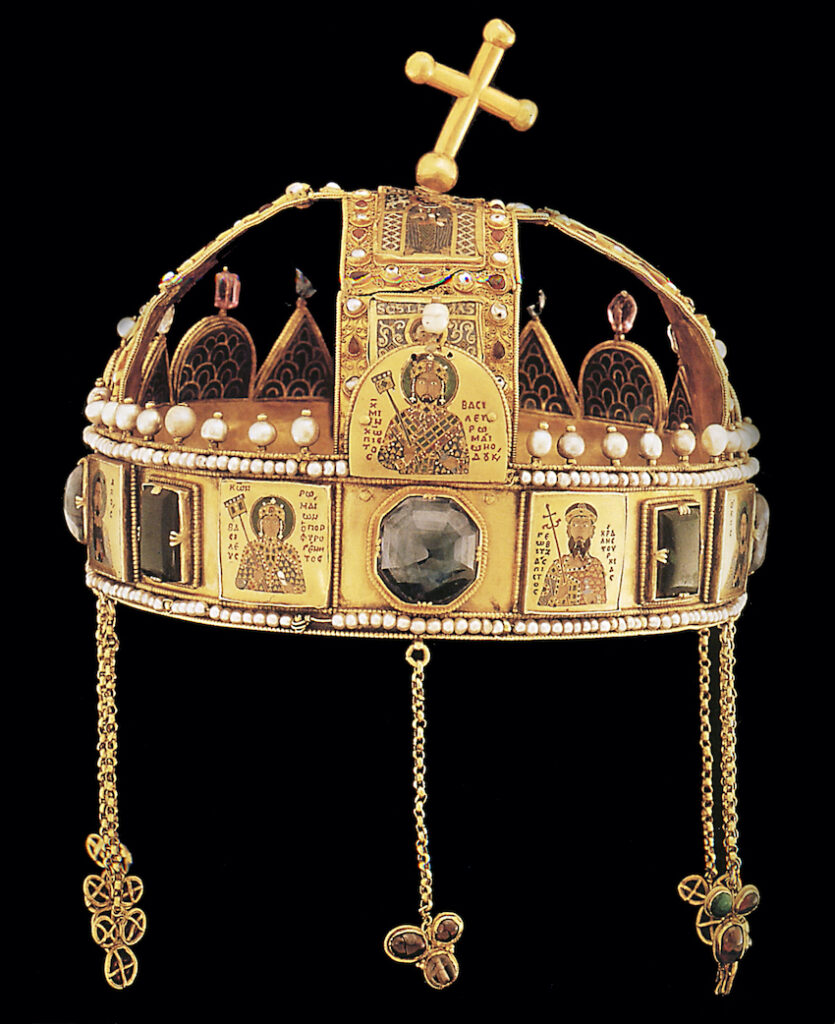
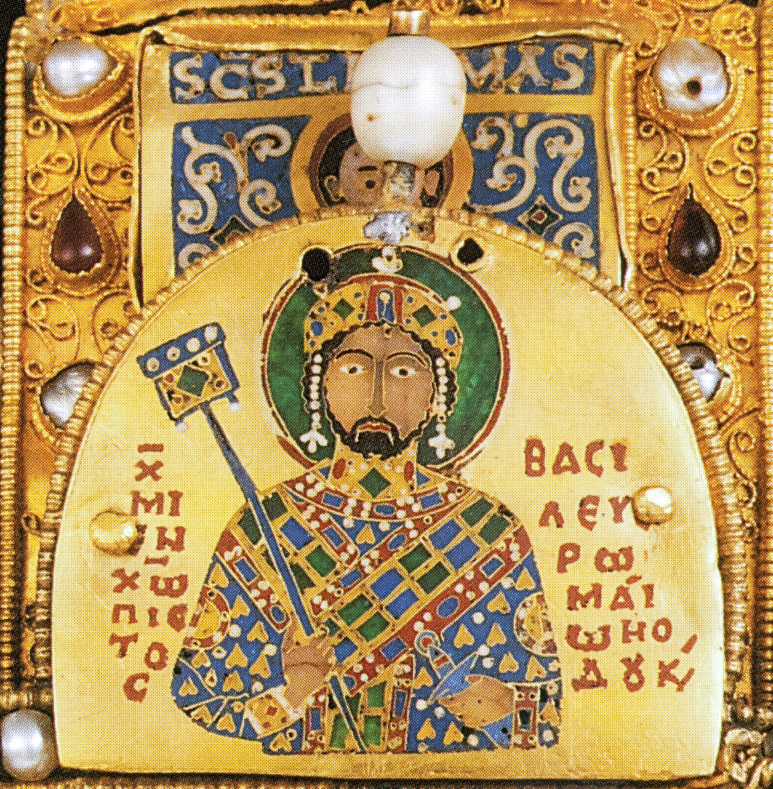
There were marriages between Byzantine and Hungarian royal families. The Hungarian Princess Piroska (daughter of King Ladislaus I of Hungary) married the great Emperor Ioannis Komnenos (1087-1143) and they had eight children. She was known for her piety and was canonised by the Orthodox Church under the name of Saint Irene.
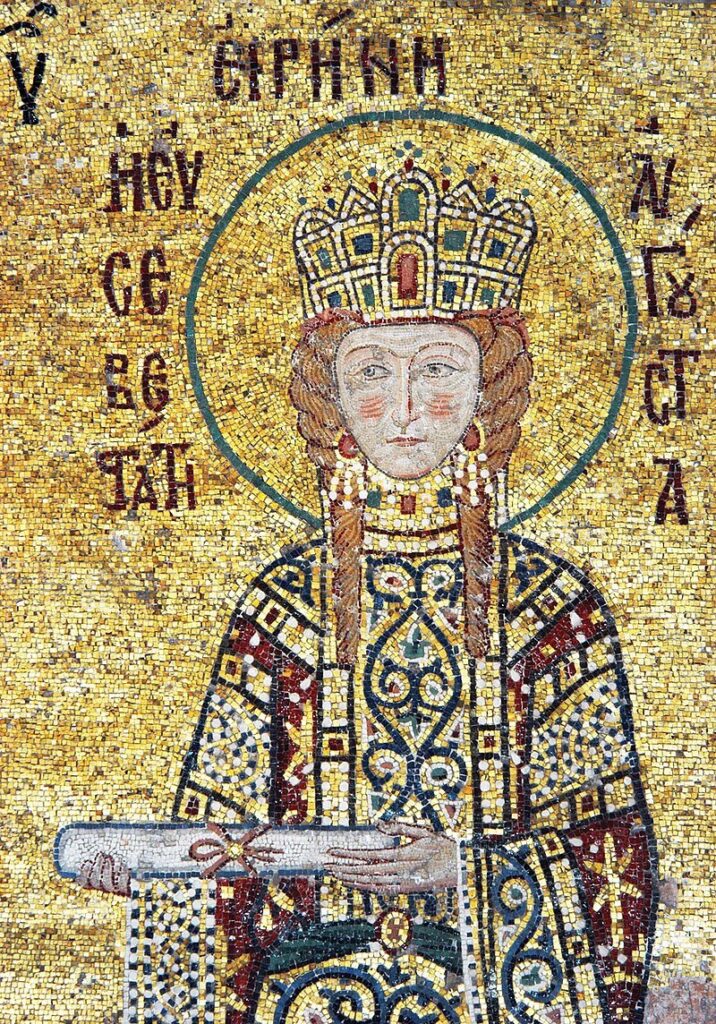
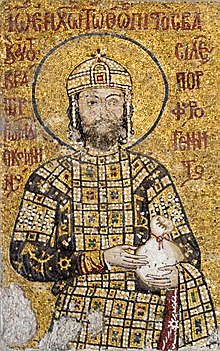
In addition, traces of the Greek Diaspora in your country in the 18th and 19th centuries can be found all over Budapest. For example, many buildings in the 5th district in particular, testify to the presence of Greek merchants. The emblematic Széchenyi/Chain Bridge was largely financed by Georgios Sinas, who is immortalised under one of the lions on the Buda side of the bridge.
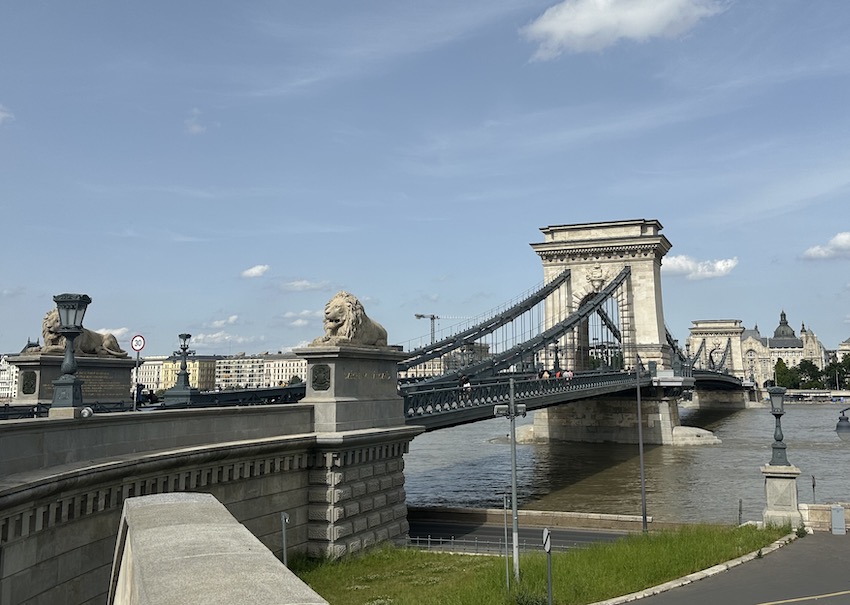
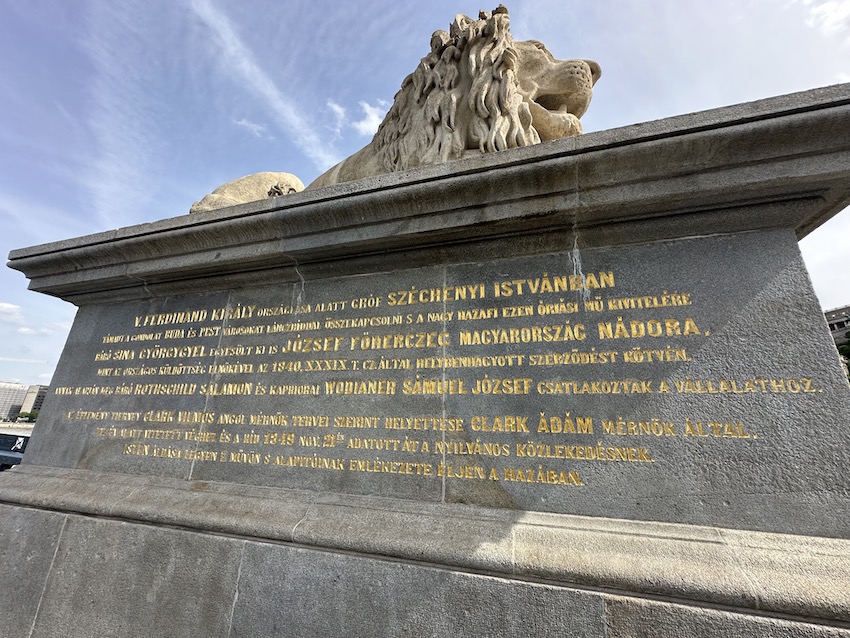
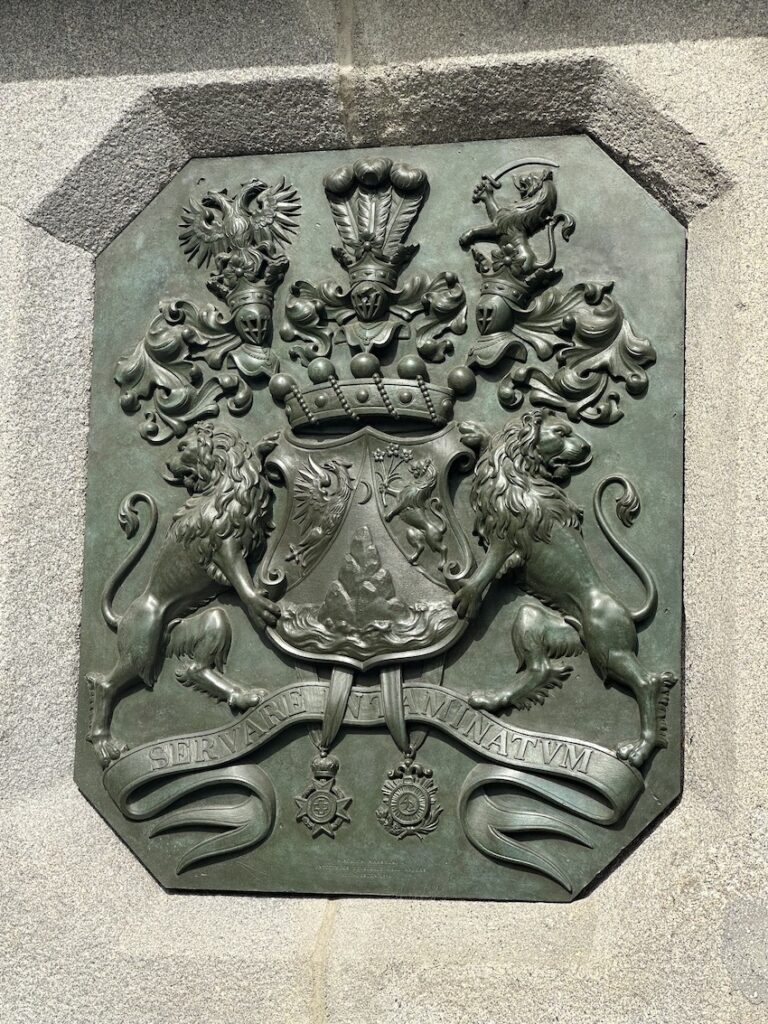
His son, Simon Sinas was the biggest donor and founder of the Hungarian Academy of Sciences on Széchenyi Square.
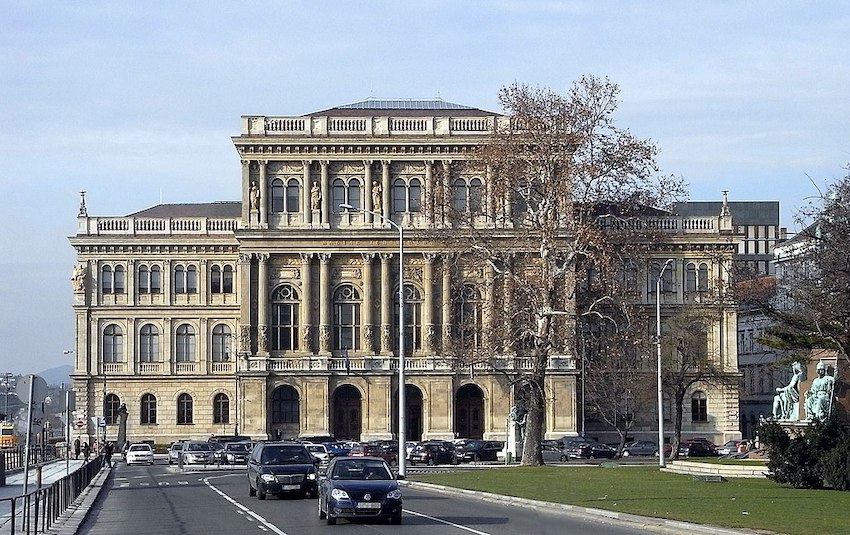
The house of the Mouratis family (now the Bank of China building) still stands on Vörösmarty square, whose members included Irene Mourati, the mother of Hungarian Prime Minister Pál Teleki (1879-1941).
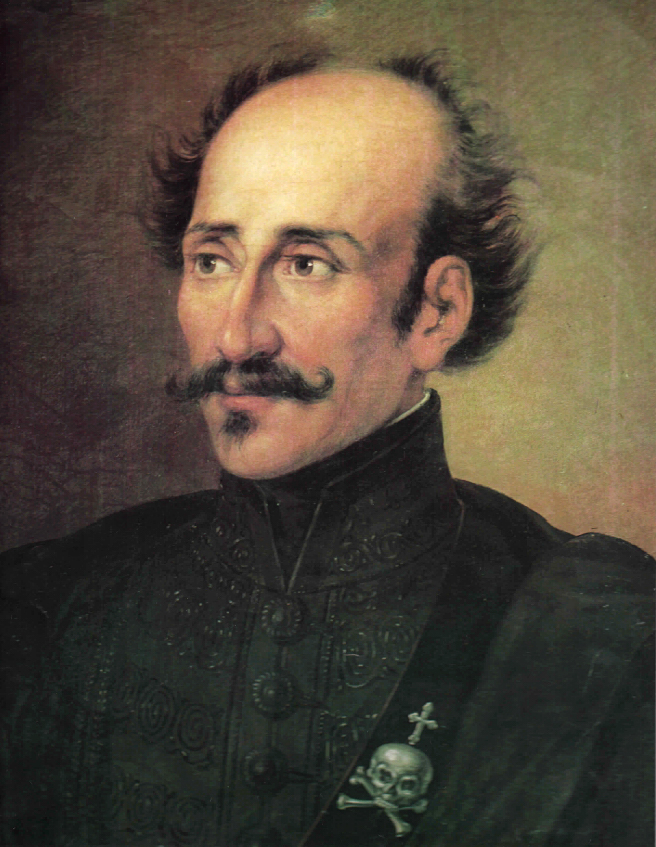
At Váci street 26, one can see inscriptions bearing the name of Prince Alexandros Ypsilantis, who started the fight for Greek independence in 1821. After his effort was defeated, his fighters received help from the Hungarian people.
The Greeks of Hungary were very grateful for this and fought on the Hungarian side during the 1848-49 revolution.
On Haris street, a memorial plaque commemorates George Harisis, who built the first covered market in Pest.
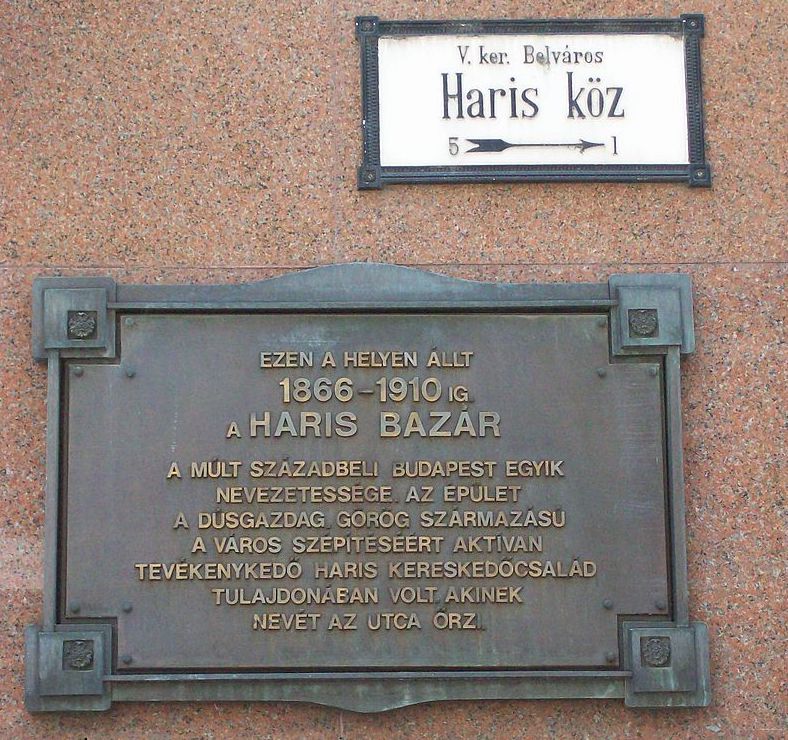
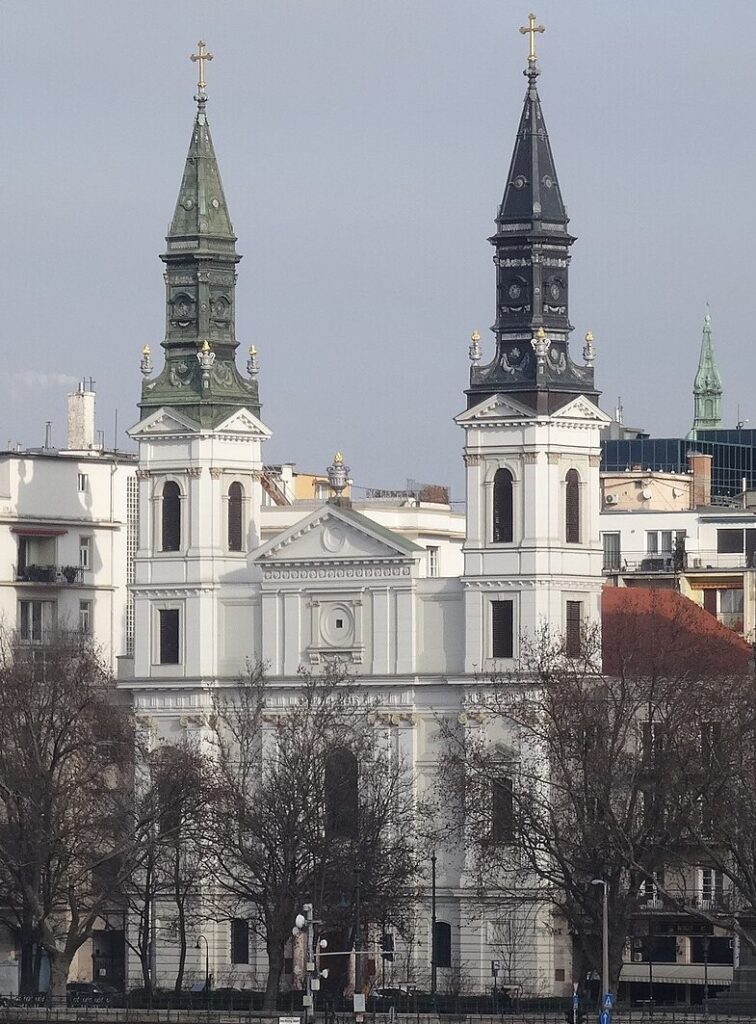
Overlooking the Danube, on Petőfi tér stands the impressive and graceful Church of the Holy Assumption of the Virgin, built by wealthy Greek merchants in the late 18th century.
Memories of this Greek presence live on in other places too, such as the Fiumei út cemetery in Budapest, where there are some beautiful graves, and in towns such as Szeged, Ηódmezővásárhely, Szentendre, Szentes and even Tokaj, where Greeks were involved in the wine trade 200 years ago.
The Greek presence in Hungary is however not just a matter of history. About 5,000 Greeks still live in Hungary today and are officially recognized as one of the country’s national minorities. Most of them are now descendants of former political refugees who came here after the Greek Civil War of 1946-49. They were well-received and are today very well integrated into Hungarian society and active in all walks of life. Although about half of them now live in Budapest, the village of Beloiannisz (about 45 km south of Budapest), built in 1952 on a land that once belonged to the Sinas family, remains always an important reference for Greeks in Hungary. Newer Greeks have also arrived, including businessmen, students, as well as managers and employees of multinational companies. And, of course, there are also mixed families created by Greeks married to Hungarians.
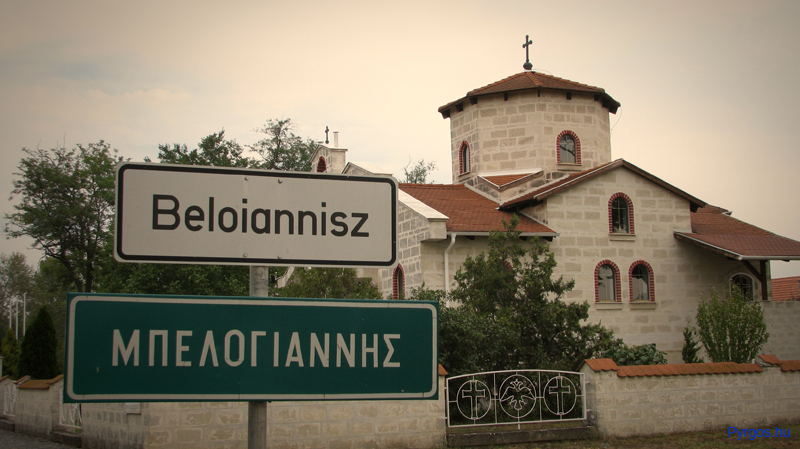
In conclusion, I would like to express my country’s gratitude for the warm hospitality and support that Hungary has shown to the Greek minority, which has always served as a bridge of friendship between our countries and peoples.
Your Excellency, please tell us about Your diplomatic career. What was Your inspiration for joining the Foreign Service? What do You think are the most challenging and rewarding aspects of working in the Diplomatic Service?
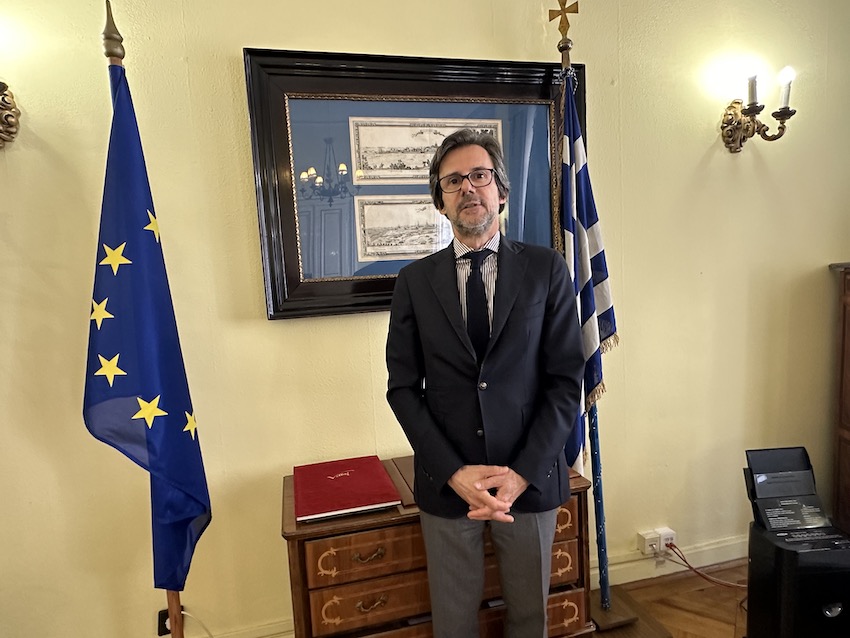
– I joined the Greek Foreign Service more than 30 years ago, and since then I have had the chance to hold many posts in Athens and abroad, including the UN, NATO, Türkiye, China and Italy. I arrived to your beautiful country in December 2022 directly from Estonia, where I spent 3,5 years serving as Ambassador of Greece.
I think that one of the most important privileges of my profession is the task of representation, this unique responsibility and privilege given to a diplomat to present the positions, history, culture and the entire “brand” of his country not only to counterparts but also to the locals of the country he serves. In a way, every Ambassador is a kind of mirror of his country and this is a big responsibility but also a great honour, it is invaluable reward for all the difficulties and complexities of the diplomatic profession.
Your Excellency, how do You feel living and working in Budapest? Has the experience so far met Your expectations? After busy working days, how do You relax and recharge Your inner batteries? Do You have a favourite pastime activity?
– From the moment I set foot on Budapest, I was impressed by the beauty of the city. And this feeling is getting stronger every day. I have the chance to live in one of the most beautiful districts of the city, admiring the magnificent view of the emblematic Szent István Bazilika (St Stephen Basilica) from the windows of my residence. One of the biggest joys of my stay in Budapest is my weekend long strolls in this intriguing city, where there is something new to discover every time. And of course, as an opera buff, I have the privilege to attend very often the performances of the Hungarian State Opera, which luckily is only a few steps away from my residence.
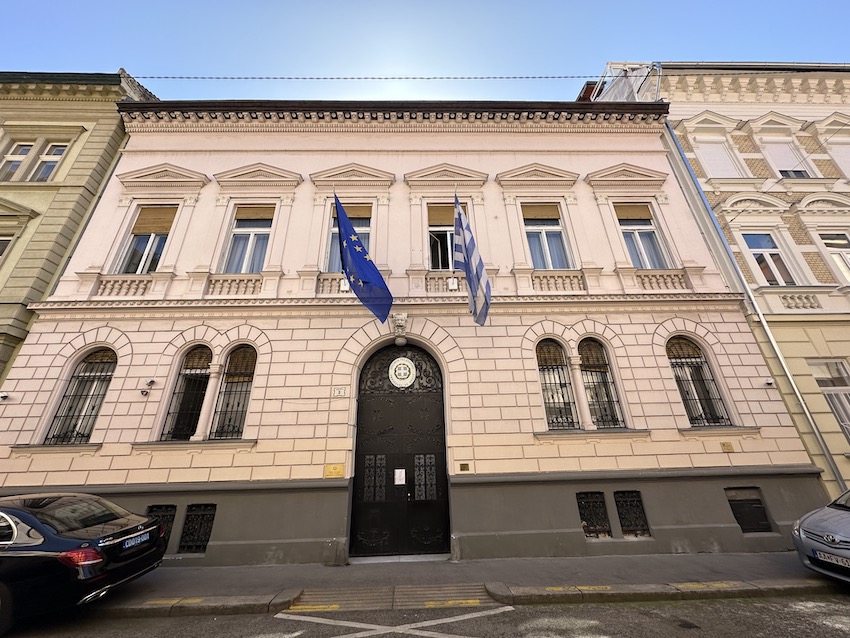
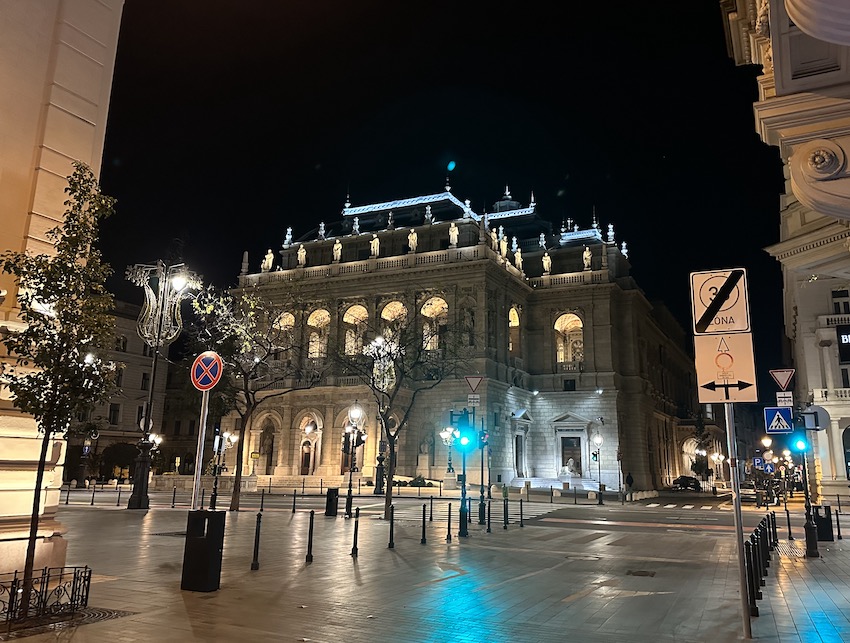
A more personal question: what do You miss the most from home?
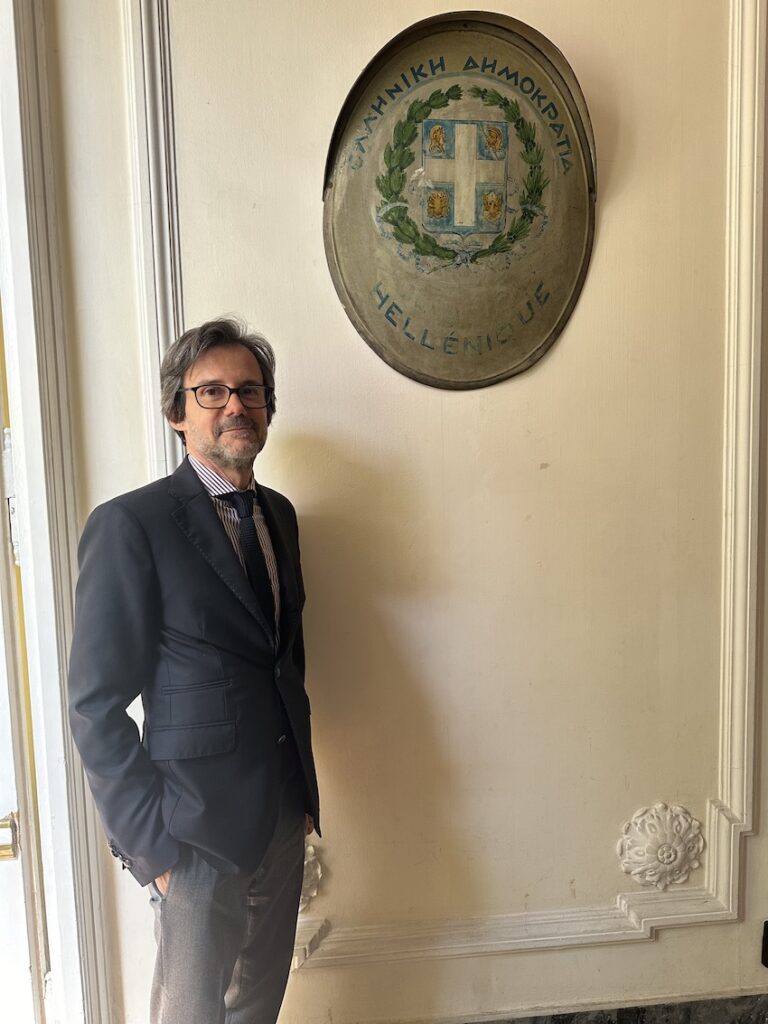
– There is actually nothing I miss from home, as everyday life in your country is really very enjoyable and fulfilling for me. However, if I had to mention one thing, as someone whose origin is from the wonderful island of Crete, I would say that I miss the Greek sea and its unique deep blue colour.
If You had one diplomatic wish that could come true, what would You ask for?
– I think that in the current period of polycrisis and multiple challenges a diplomat could only wish for more diplomacy and less wars and conflicts in the world. And this brings us back to the “three D-words slogan” of the Greek candidacy for the UN Security Council. Having a principled foreign policy based on full respect for International Law and for the principles and purposes of the UN Charter, Greece will cooperate with all UN members to promote Dialogue, Diplomacy and Democracy around the world.
Your Excellency, thank you for the interview.
Anna Popper
